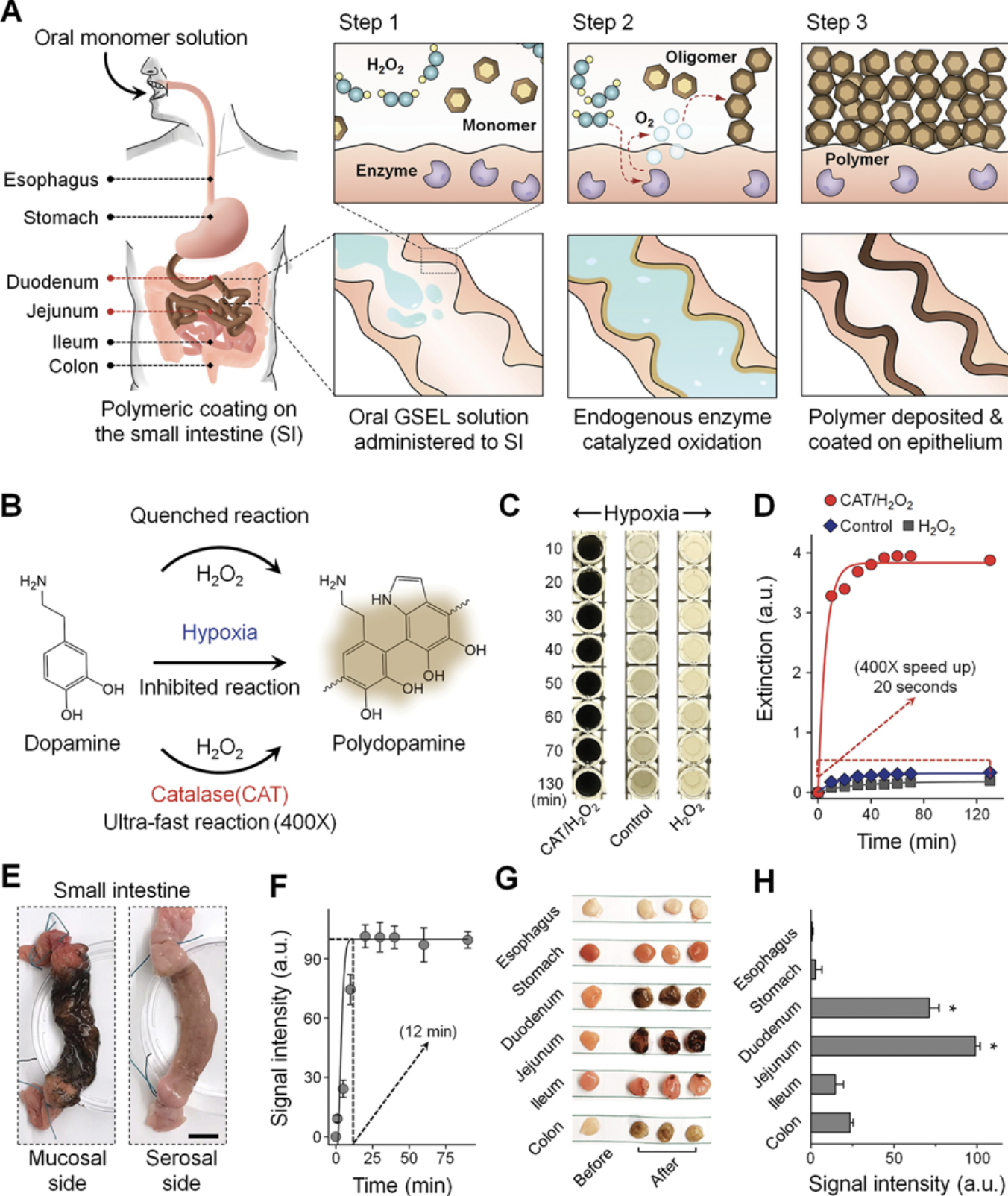Science Translational Medicine
Gastrointestinal synthetic epithelial linings
DOI: https://doi.org/10.1126/scitranslmed.abc0441
Abstract
Epithelial tissues line the organs of the body, providing an initial protective barrier as well as a surface for nutrient and drug absorption. Here, we identified enzymatic components present in the gastrointestinal epithelium that can serve as selective means for tissue-directed polymerization. We focused on the small intestine, given its role in drug and nutrient absorption and identified catalase as an essential enzyme with the potential to catalyze polymerization and growth of synthetic biomaterial layers. We demonstrated that the polymerization of dopamine by catalase yields strong tissue adhesion. We characterized the mechanism and specificity of the polymerization in segments of the gastrointestinal tracts of pigs and humans ex vivo. Moreover, we demonstrated proof of concept for application of these gastrointestinal synthetic epithelial linings for drug delivery, enzymatic immobilization for digestive supplementation, and nutritional modulation through transient barrier formation in pigs. This catalase-based approach to in situ biomaterial generation may have broad indications for gastrointestinal applications.

